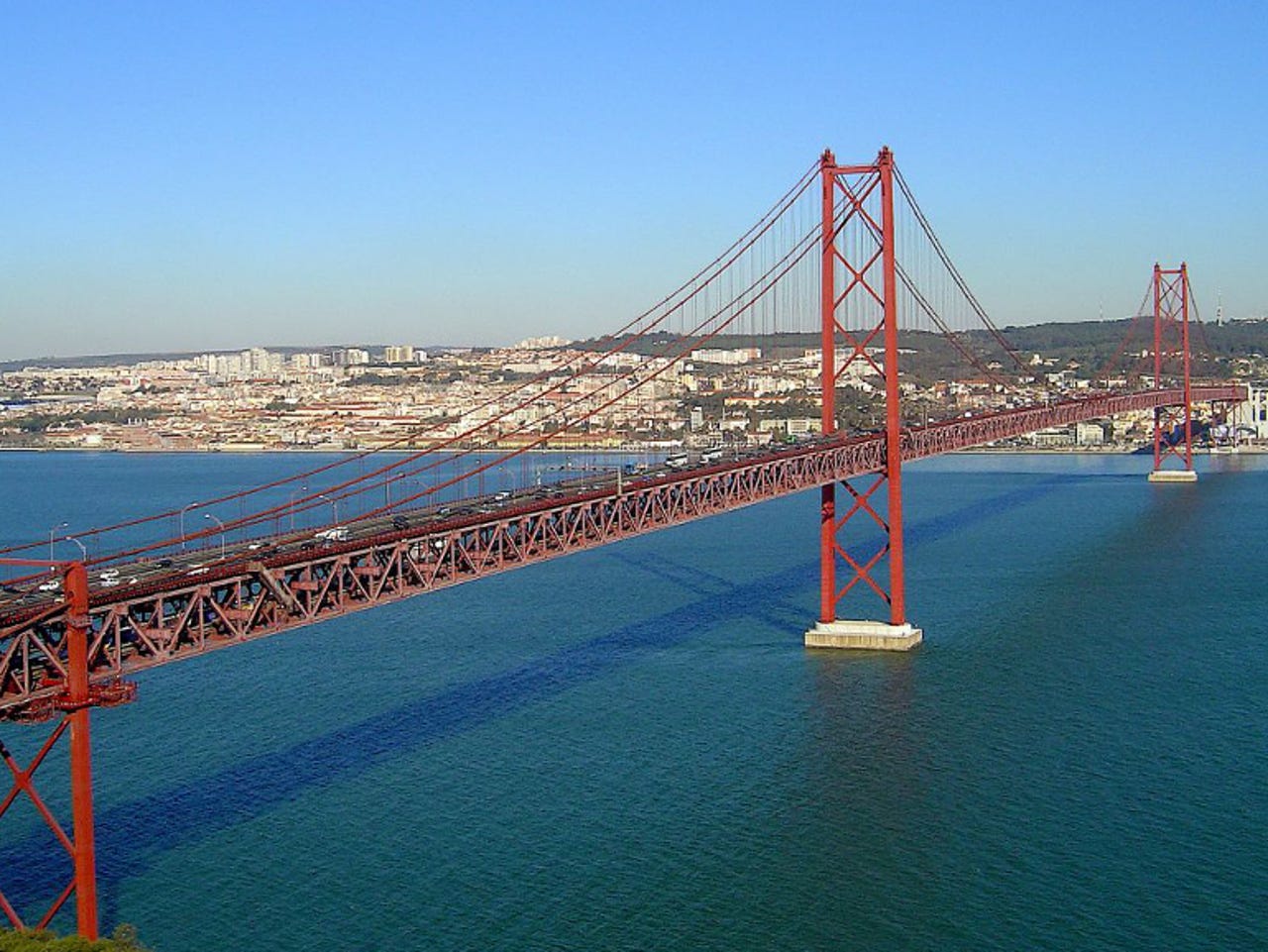Big red bridge, devs, startups: Guess the city behind this tech boom (hint: it's not San Fran)


Paradoxically, austerity measures have been a key factor in sparking a boom in entrepreneurship in Portugal, with Lisbon at its heart.
Late last year, when tech conference Web Summit announced it was relocating from Dublin to Lisbon for the next three years, the decision was met with puzzled controversy.
But then some of those commentators who had overlooked Portugal as a location for technology startups until that point began to discover there were entrepreneurs on the banks of the Tejo -- and good ones, at that.
Portuguese startup founders and investors have also been also quick to grasp the news as an opportunity to promote themselves and their brands.
So, was all this sudden attention justified, or how much was it just the usual hype, combined with the neverending quest for the latest silicon something? The answer is probably both.
There is indeed something going on in Portugal in general, and in the capital specifically. But the new wave of innovation is not coming out of the blue, as it might appear at first sight. And the country, while growing in standing, is not at the levels of Berlin, let alone London. Yet it's true that the current success seems to have solid foundations.
Long before university accommodation startup Uniplaces, which raised $24m in series A funding in November, or the so-called Portuguese unicorn FarFetch, or networking startup Veniam started to raise their profiles, a lot of the right elements to encourage innovation had been quietly put in place.
"A lot of investment has been done through the years on getting people to go and do their PhDs in the US. This created a new generation of entrepreneurs who have an international outlook and are very at ease with it," Vasco Pedro, CEO and founder of startup Unbabel, one of the fastest-growing companies in the region, tells ZDNet.
While cultural bridges and connections across the Atlantic were built, innovation hubs linked to the technical universities were also being established, mainly in the north of the country; from UPTEC in Porto, founded in 2007, to the Spinpark in the Minho region.
Those were also the years in which the first Portuguese startups were making headlines internationally.
Mobicomp, a company making software for mobile phones, was acquired by Microsoft in 2008. One of the founders was Carlos Nuno Oliveira, who later became Portuguese secretary of state for entrepreneurship, competitiveness and innovation, a position created in 2011 by the government, to boost the country's economy in harsh times.
There had been other signs that the state was serious about supporting entrepreneurship and investments. In 2005, it set up a project called Empresa Na Hora, designed to ensure people could create a company quickly and mostly.
In 2009, the country introduced the so-called non-habitual residents' taxation regime to attract foreign capital.
According to Lisbon Beta-I's incubator co-founder, Ricardo Marvão, it's a program that allows you to pay only 20 percent of taxes for five years, provided you become a Portuguese resident, and have not been paying taxes in the country in the previous five years.
"This means we now have a lot of expats wanting to create their company or willing to invest in something," he says.
In 2012, Portugal also launched the so-called Golden Visa, a fast-track scheme to enable entrepreneurs coming from outside the Schengen area to stay in the country.
It seems a contradiction but none of these measures would probably have made a real difference if the financial crisis of recent years had not hit Portugal so hard. Austerity measures were a key factor in sparking a boom in entrepreneurship.
"Suddenly, creating a startup was not such a big issue. You told yourself: 'I don't have a steady job anyway. I might as well do my own thing'," Unbabel's Pedro says.
The entrepreneurial virus quickly spread through Lisbon. Beta-I was one of the first incubators to appear, in 2010, followed by Startup Lisboa and many others. Today, the city is home to some 17 incubators and accelerators and is attracting startups from all over the world, thanks to a number of natural advantages.
"There is low-cost accommodation, food, transportation. That's very good for startups that are... bootstrapping. Young people speak foreign languages very well, and you have an amazing infrastructure with a lot of great connection, internet fiber and 4G," Beta-I's Marvão says.
That is without mentioning the 300 days of sunshine a year and the great beaches nearby, something which Lisbon has in common with San Francisco, together with the red bridge on the river. The comparison with the Bay Area comes handy also in other respects.
"If you look at San Francisco, one thing that helped technology companies succeed, was that they did not have too much competition, whereas in New York you have a bit of everything, and in London you have a big financial scene. Lisbon is more similar to San Francisco, in that respect," Unbabel's Pedro says.
While Lisbon is in the spotlight, other places, like the northwestern town of Braga are developing interesting startup scenes, thanks also to the support of Microsoft Portugal.
Capital has started to be available: Caixa Capital, Faber Ventures, and Portugual Ventures are among the most active local investors, but the country has also been on the radar of some international funds for some time now.
As a result, commentators suggest promising companies such as Tradiio, Graphenest, and Sword Health should have little trouble finding the funds to scale up their operations.
"I have not seen a great company falter because of lack of funding. There are angles, there are VCs, not many, but with fairly deep pockets," Caixa Capital's executive board member Stephan Morais says.
But before the Lisbon startup scene, and Portugal in general, can offer something comparable to other, more mature ecosystems, there's still some way to go.
Portuguese startups, past a certain stage, usually have to move abroad to grow further, because they need to get closer to bigger investors and to the markets they are serving. Veniam, Seedrs, FarFetch, and Talkdesk have all moved their headquarters elsewhere.
"This isn't London or Berlin, of course. We totally understand that. For me, the ecosystem has to go around full circle for it to work," Beta-I's Marvão says.
"That means not only the companies have to receive good funding rounds, but then they have to either exit or do an IPO. Then the founders who do those exits or IPOs have to reinvest in the ecosystem, so that it really starts feeding itself. It will take some time, but I believe, by 2020 we'll be there."